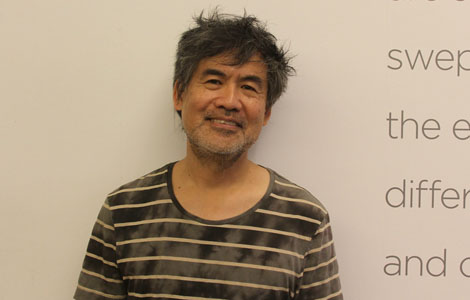Courts levy stiffer drug sentences
Updated: 2014-06-26 07:18
By Cao Yin (China Daily)
|
||||||||
Compared to other convicts, those with drug-related convictions have faced harsher punishments in recent years, and the judicial iron fist that aims to dissuade people from committing drug crimes will continue to hammer down on lawbreakers during the country's effort to cut drug abuse, the country's top court said.
More than 27 percent of defendants in drug-related cases were sentenced to at least five years in prison or were given a death sentence from 2007 to last year countrywide, according to statistics from the Supreme People's Court released on Wednesday, ahead of the International Day Against Drug Abuse and Illicit Trafficking that falls on Thursday.
The proportion of harsh sentences in the nation's southwestern and northeastern regions has been much higher, said Ma Yan, deputy chief judge of the criminal department at the top court.
For example, about 83 percent of defendants involved in drug crimes in Southwest China's Yunnan province got jail terms of more than five years in 2012, and that ratio remained high last year, Ma said.
"Our courts have been strictly tackling drug-related crimes, such as drug trafficking and crimes caused by taking drugs. Punishments are handed down according to the gravity of the negative influence the criminals have brought to society and how malicious the defendants are," he said.
A boom in drug-related cases in recent years, as well as the rapid increase in the number of people involved, highlight the necessity for severe sentences, he said.
In 2007, Chinese courts handed down indictments in about 38,000 drug-related cases, but last year the number jumped to 97,225, the top court said, adding that the number of drug convicts also increased to almost 100,000 from 43,000 during the same period.
Drug addicts and traffickers have made inroads from coastal and border provinces to China's interior, according to Ma, so now they can be found virtually everywhere.
In addition, an increasing number of crimes triggered by drugs, including homicides and robberies, have been reported, he said.
Gong Xingfu, a native of Hunan province, killed his girlfriend and their 4-month-old son with a knife after taking a methamphetamine known as ice, according to a statement of the top court.
The drug drove Gong out of control, and he threw his baby to the ground after hacking the child's head, the statement said. Gong was executed in December.
Le Yan, a 22-year-old mother in Nanjing, Jiangsu province, provides another example.
Le, also a drug addict, was sentenced to life in prison for intentional homicide after she left her two young daughters at home and let them starve to death. "Obviously, taking drugs and other drug-related behaviors not only damage defendants but also their families," Ma said.
Stricter punishments provide a warning to the public and will suppress bad behavior, according to the top court's spokesman, Sun Jungong.
But Li Wenjun, associate professor of drug prohibition studies at the People's Public Security University of China, said helping people, especially youngsters, understand the harmfulness of drugs is more important than the crackdown.
"Better education is more effective than a simple campaign," she said.
- Drug rehabilitation center aims to teach moral character
- A day in the life of an anti-drug policewoman
- China sentences more criminals for drug-related offenses
- China vows to expand support for neighbors' drug fight
- Drug crimes, busts up over 20% since 2013, officials say
- Guangdong crackdown hurting overseas drug traffickers
- Police targeting Internet drug crime

 2014 Smithsonian Folklife Festival kicks off in DC
2014 Smithsonian Folklife Festival kicks off in DC
 Baucus says investment pact will open new chapter in ties
Baucus says investment pact will open new chapter in ties
 Xunlei IPO on Nasdaq raises $88m
Xunlei IPO on Nasdaq raises $88m
 PLA ships arrive in Hawaii for naval exercise
PLA ships arrive in Hawaii for naval exercise
 Beijing, Boston are just 13 hours apart
Beijing, Boston are just 13 hours apart
 Chinese tycoon hosts luncheon for homeless New Yorkers
Chinese tycoon hosts luncheon for homeless New Yorkers
 Crew at fault in Asiana crash: NTSB
Crew at fault in Asiana crash: NTSB
 Shanghai's Jews focus of DC show
Shanghai's Jews focus of DC show
Most Viewed
Editor's Picks

|

|

|

|

|

|
Today's Top News
Chinese investors discovering lure of Detroit
Chen Guangbiao's charity event provides lunch, no cash
China set to be net investor
Six Flags joins theme-park rush in China
Mediators can end labor wrangles, foreign firms told
Aquino backs Abe's military ambitions
Concern surrounds Chinese security forces in Iraq
Pilots' 'mismanagement' causes Asiana crash
US Weekly

|

|






